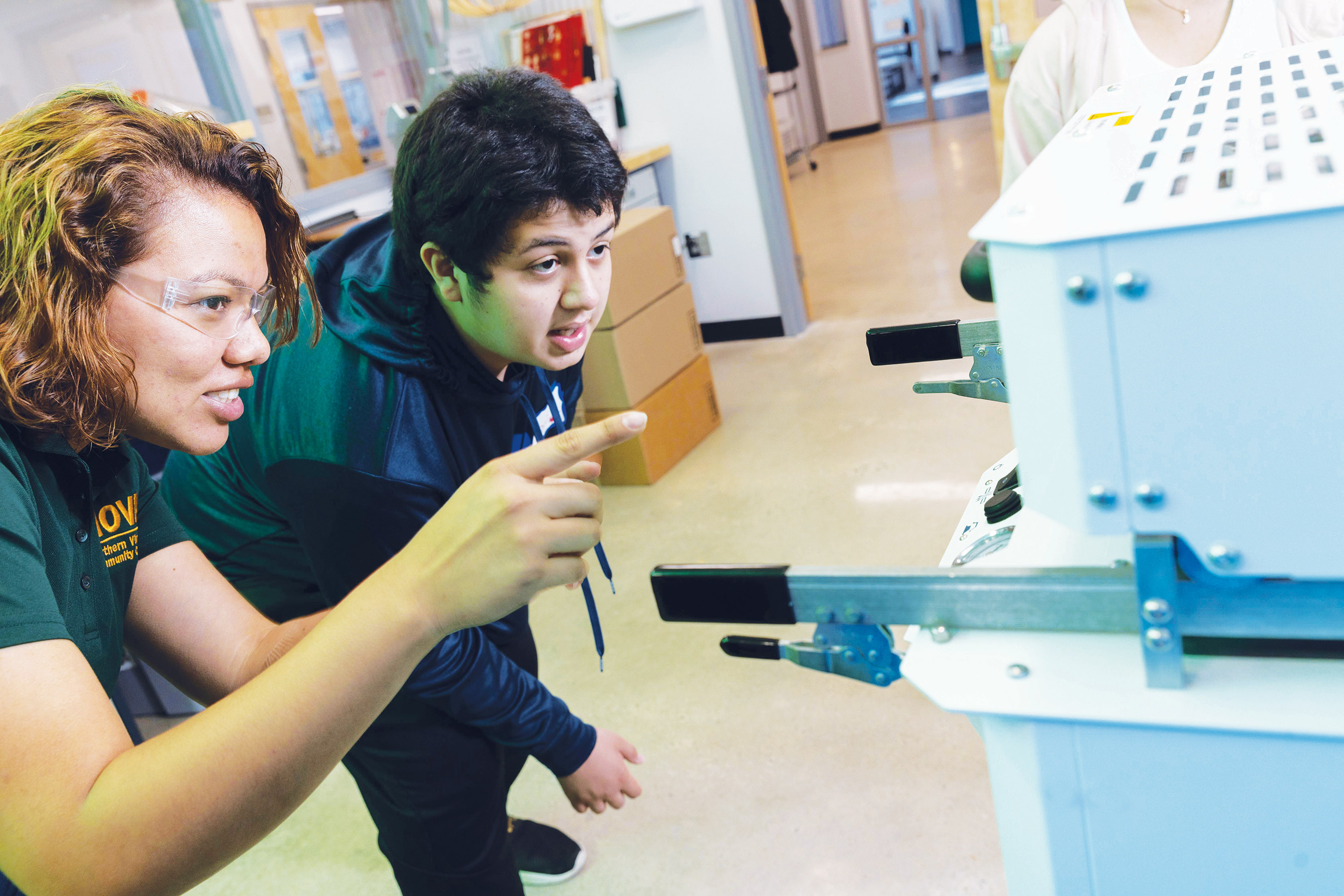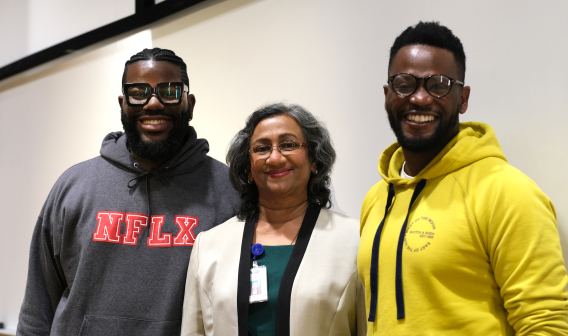NOVA Partners With Industry to Fill Tech Workforce Needs
Northern Virginia Community College (NOVA) stands poised to help train a growing regional tech workforce, offering a range of technical associate degrees and certifications for in-demand technology jobs. The school has a variety of long-standing partnerships with the tech industry, including some that have helped build a science, technology, engineering, and mathematics (STEM) outreach facility, and a relationship with Amazon aimed at building key technology skills.
Career-Changing Amazon Partnerships
Amazon, currently building and staffing its HQ2 complex in Arlington County, is the second-largest employer in the United States, according to 24/7 Wall St. The company believes that status comes with the responsibility to provide its employees opportunities for growth.
To that end, Amazon has “a wide range of programs that are focused on creating pipelines of talent internally and in the community, with an eye to helping communities grow and thrive,” said Kim Majerus, vice president of education, state, and local government at Amazon Web Services (AWS).
The company partners with educational institutions to incorporate cloud computing training into STEM curriculum at the secondary and post-secondary levels, with NOVA and George Mason University (GMU) among the first educational partners when the collaboration was announced in 2019. NOVA’s cloud computing specialization, part of its information systems technology associate’s degree, is one of the first cloud computing degrees in the country offered by a community college.
That’s what industry demands here. We have critical infrastructure that needs that engineering and technology base.
Expanding on the initial associate’s degree, NOVA and GMU worked with AWS to build a bachelor’s degree that equips students with technical skills and hands-on experiences to help prepare them for tech careers.
NOVA also partners with Amazon on an apprenticeship program that trains veterans for cloud computing positions with the company, including a 16-week educational program and on-the-job training at AWS’ headquarters in Fairfax County. Apprentices come away from the program with several technical industry certifications, including CompTIA Network+, Linux+, and AWS Solutions Architect. In addition to Amazon, NOVA has partnered with AT&T to create talent pipelines.
To further bolster the regional talent pipeline, NOVA has hosted two skills-based training workshops organized by AWS and Sumitomo Electric Lightwave. Through a Sumitomo-backed course, students earn an industry-recognized certificate in fusion splicing, where fibers are fused together using an electric arc.
“Innovative partnerships help us match our programming to the needs of the region as we build a future-ready workforce,” said Dr. Chad Knights, vice president of information and engineering technologies and college computing at NOVA. “To ensure that our students and existing workforce stay competitive in this fast-growing market, it is essential to provide state-of-the-art technology training opportunities.”
A Hub for STEM Activity
In early 2020, NOVA unveiled the Fabrication Laboratory, or Fab Lab for short, at its Manassas campus. The 10,000-square-foot multifunctional facility has classrooms, technical training capabilities, and a maker space filled with a variety of fabrication tools, including design software, 3D printers, computerized woodworking tools, and laser cutters.
Despite early pandemic-related difficulties, the Fab Lab has become a hub for NOVA SySTEMic, the outreach program for STEM and career and technical education (CTE) at NOVA. It’s a significant investment in technology jobs training, education, and awareness, built with support from a GO Virginia grant and partners Micron Technology, BAE Systems, and the U.S. Army’s Night Vision and Sensors Directorate.
“That’s what industry demands here,” said Josh Labrie, director of NOVA SySTEMic. “We have critical infrastructure that needs that engineering and technology base. We support teachers, raise awareness for parents, and expose students to robotics, coding, and engineering.”
Innovative partnerships help us match our programming to the needs of the region as we build a future-ready workforce.
The new spaces and equipment, combined with NOVA personnel, allow SySTEMic to plan a wider range of events, from elementary school robotics activities to technical job skills or teacher training sessions, all without long lead times or significant additional investments from partners. “We couldn’t do it without the Fab Lab as our home base,” said Labrie.
NOVA SySTEMic has developed many industry partnerships over the years with organizations like Micron Technologies, Inc., BAE Systems, Amtek Company, Inc., and several data center operators. Each company is a bit different in how much and exactly how they are able to engage with programs. The common thread for these companies is that the Fab Lab is a place to convene industry, higher education, and the community with a shared interest in technology.
The Hidden Upside of Collaboration
For students and educators, some of the benefits of cooperating with industry are relatively clear. Monetary donations help expand or improve programs. Professional consultation ensures that curriculums and lesson plans are preparing students for careers and maintaining the value of degrees. But these partnerships can add value in many other small ways that add up to big impact in the long term.
“There are always partners around,” said Labrie — and even if these relationships start small, they may develop over time. NOVA can then also request résumés, assembling a pool from which to recruit adjunct faculty down the road.
SySTEMic recently received three National Science Foundation grants that Labrie credited in part to letters of support from both industry and governmental groups. That support comes from years of working together, but the importance of those relationships might not be clear from the outside.
One of those grants, the Makers by Design program at the Fab Lab, will train a diverse group of 17 fellows in teaching design thinking. Program enrollment was expanded with additional support from Micron. As part of the training, the fellows will offer free summer camp programming to local Boys & Girls Clubs, and later develop design challenges that can be used across the region.
Building a technically skilled workforce requires collaboration between educators and industry, but also connections with government and the community. “If we don’t have everyone participating along the way, we’re not going to fill the jobs,” said Labrie.





